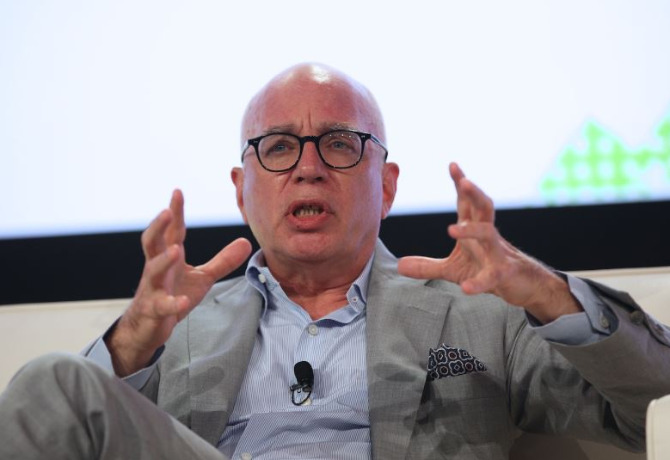TV remains a dominant force in the media industry, according to The Hollywood Reporter’s Michael Wolff’s book, ‘Television is the new Television’.
Wolff discussed his opinions with a panel consisting of LAMAC president and chief executive officer Gary McBride and A+E Networks Latin America president Eddy Ruiz.
According to Wolff, the digital age will not faze out the ever present demand for the screen – no one puts TV in the corner.
“Digital came along and ruined the print business, ruined the media business,” said Wolff. “It was a pretty big ruination.”
McBride agreed that television was still a very powerful business, with some businesses like Fox taking advantage of the interest consumers have in developing multi-media channels.
Ruiz said that the original reason he bought cable television was because it gave him a better signal in his house. “Most young ones have never seen the rabbit ears,” he joked, going on to speculate that HD provided a good reason to upgrade.
“I don’t think people even acknowledge that there is a difference between broadcast and television anymore,” Wolff said. “I have a hard time explaining it to my children.”
Ruiz referred to Comcast’s acquisition of NBC Universal as a ‘new phenomenon’ of a cable company working with a content company. However, Wolff said it was an anomalous phenomenon. “In a real world, a cable company doesn’t own a content company – it’s an ego issue.”
McBride discussed how, despite initial fears that digital may be a threat to television, it had actually turned into a real opportunity.
According to Wolff, television as a business model is “as great, or greater, than it has ever been”.
Discussing YouTube as the Napster of television, Wolff commented, “In the good old fashioned TV business, what do you do when in doubt? You sue!” He went on to discuss how the law suit changed the face of the television industry, making it something that had to be licensed.
“YouTube’s only future is as a platform that licenses television,” Wolff said, going on to describe how the company went into the market and spent hundreds of dollars to create more professional content, but because the company was ‘not in show business’ it had no idea how to manage its money.
“They are still left with a platform that has enormous viewership and very few ways to monetise it,” he added. “One episode of the big bang theory yields more money than a whole week of YouTube.”
With regards to Facebook, Wolff said that the platform has “millions upon millions of users but they don’t have anything they can serve these users that creates a really premium experience”.
“Everybody in the digital business – what they really wants to is be in the television business,” Wolff concluded.








